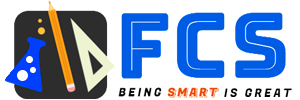Foundations of Querying in Transact-SQL – Free Udemy Courses
Learn the fundamental principles that define the Transact-SQL language and write better, solid queries
What you’ll learn
Foundations of Querying in Transact-SQL – Free Udemy Courses
- Understand the foundation on which the Transact-SQL language is based
- Understand the relationship between the Relational Model, standard SQL, and Transact-SQL
- Understand how Microsoft implemented T-SQL as a dialect of the standard SQL
- Understand the simple treatment of Set theory and Predicate Logic that forms the foundation of standard SQL and hence Transact-SQL
- Understand the difference between the physical processing and logical processing of queries
- Examine the six logical query processing phases with examples
Requirements
-
An understanding of basic database concepts
-
Experience working with SQL Server Management Studio (SSMS)
-
Some experience with T-SQL code
-
Access to SQL Server 2016 and above with the sample database AcotexDB installed (see lesson one resources)
Description
Transact-SQL is the main language used to manage and manipulate data in Microsoft SQL Server. This course lays the foundation for querying data by using T-SQL. The course describes the roots of the language, terminology, and mindset you need to adopt when writing T-SQL code. It then moves on to describe one of the most important concepts you need to know about the language: logical query processing This course introduces you to the core mathematical concepts (sets and predicate logic) and relational model on which the standard SQL language is built and hence that also defines the Microsoft Transact-SQL language. You will learn the difference between the logical and physical processing of Transact-SQL. You will get an understanding of the logical processing phases of queries. To receive the most from this course you need the following pre-requisites:
1. An understanding of basic database concepts
2. Experience working with SQL Server Management Studio (SSMS)
3. Some experience writing T-SQL code
4. Access to SQL Server instance (2016 and above) with the sample database AcotexDB installed.
We begin with a look at the evolution of T-SQL and discuss the relationship between the mathematical concepts that control the standard SQL language and how they affect the T-SQL language and the deviation of the T-SQL from the standard SQL and how Microsoft provides the tools in the language to handle these deviations.
Who this course is for:
- This course is a must for a T-SQL beginner to intermediate to get a solid foundation in the T-SQL language
- Highly recommended to T-SQL developers who want to go back to get the foundations and the building blocks of the language











Add Comment